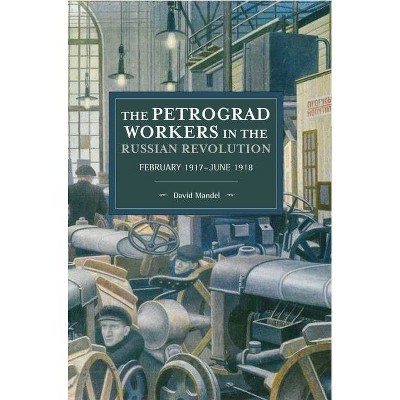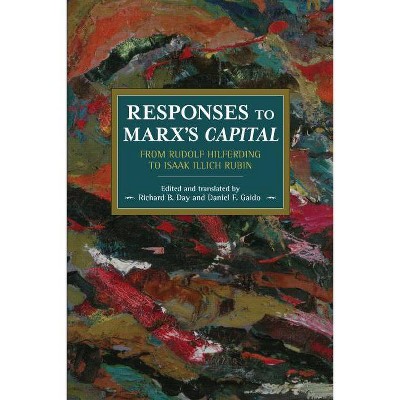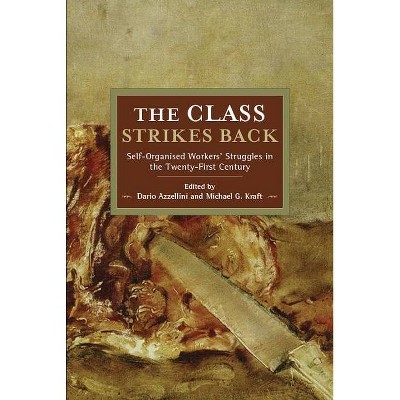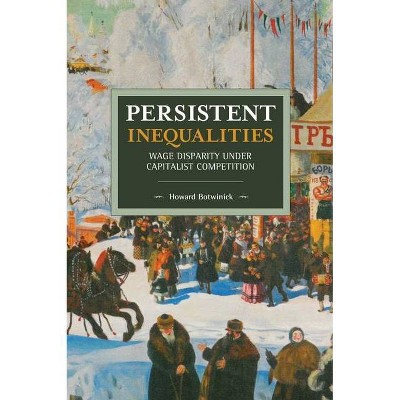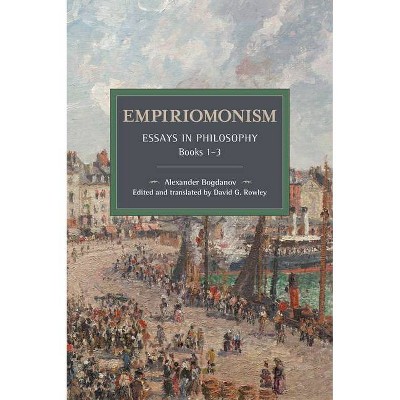When Workers Shot Back - (Historical Materialism) by Robert Ovetz (Paperback)
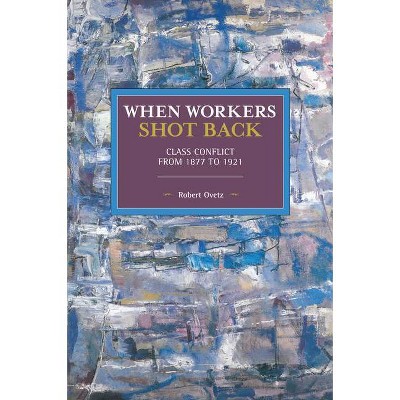
Similar Products
Products of same category from the store
AllProduct info
<p/><br></br><p><b> About the Book </b></p></br></br><i>When Workers Shot Back<i> argues that the escalation of working-class conflict drives rather than reacts to capital's consolidation and reorganization.<p/><br></br><p><b> Book Synopsis </b></p></br></br><p><em>When Workers Shot Back: Class Conflict from 1877 to 1921</em> explores one of the most tumultuous times in United States history. Self-organized workers recomposed their power by devising new strategies and tactics to disrupt the capitalist economy and extract concessions. Mine, railroad, steel, and iron workers pursued a strategy of tension that sometimes erupted into militant class conflict and general strikes in which workers took over and ran a number of cities. Turning conventional wisdom on its head, <em>When Workers Shot Back</em> argues that the escalation of working-class conflict drives rather than reacts to the consolidation and reorganisation of capital and economic and political reform of the state. Studying the class composition of this period illustrates why workers escalated the intensity of their tactics, even using tactical violence, to extract concessions and reforms when all other efforts to do so were blocked, co-opted or repressed.</p><p/><br></br><p><b> Review Quotes </b></p></br></br><br><p>[When Workers Shot Back] should be considered a landmark for anyone studying the relations of industrial capitalism and labor revolt in the 19th and early 20th centuries...the book also provides blueprints for thinking through insurgent strategies and tactics in the present. One might remember a book like this, then, when it comes time to tear down the walls.<br /><strong>--Justin Roger-Cooper, <em>Lands: Journal of Labor and Society</em></strong></p><p>When Workers Shot Back is a revelatory and illuminating account of the uses of political violence by workers in American history that contributes to understanding a crucial historical and social legacy of the American labor movement.<br /><strong>--Immanuel Ness, author of <em>Southern Insurgency: The Coming of the Global Working Class</em></strong></p><p>Ovetz shows us how to answer the question of when and why have workers taken up arms, providing us with an essential methodology for thinking through our own situations, past and future.<br /><strong>--Harry Cleaver, author of <em>Reading Capital Politically and Rupturing the Dialectic</em></strong></p><p>The ticking time bomb of revolt is percolating just beneath the surface of this surprisingly fragile social order. When it finally detonates, as it inevitably will, Ovetz's book will be prescient. I'd recommend getting acquainted with it and its enormous implications well before that imminent explosion.<br /><strong>--Chris Carlsson, author of <em>Nowtopia</em> and co-director of Shaping San Francisco, Foundsf.org</strong></p><p>In his book Robert Ovetz serves much food for thought. Why some workers became violent is not always obvious, but the idea of a pattern to explain it is nevertheless intriguing. He takes familiar ground and provides creative insight, which makes his work eminently worthwhile.<br /><strong>--Robert D. Parmet, <em>New York Labor History Association</em></strong></p><p>An indispensable book for understanding the violent nature of the capital-labor relationship during the late 19th and early 20th century.<br /><strong>--Andrew Kolin, Professor, Hilbert College</strong></p><p>Ovetz has written an ambitious and timely discussion about how labor and management organize and re-organize in their approach to workers and in response to changing work processes and economic structures ... The book is especially timely as millions of workers ... are reorganizing to deal with the drastic conditions of the COVID-19 pandemic and their quickly changing workplaces<br /><strong>--Bill Barry, <em>Labor Studies Journal</em></strong></p><br><p/><br></br><p><b> About the Author </b></p></br></br><p><strong>Robert Ovetz</strong> has a Ph.D. in sociology from the University of Texas-Austin. His work focuses on contingent labor and worker self-organisation at the turn of the 20th century. He is a lecturer in political science at San José State University in California, USA.</p>
Price History
Price Archive shows prices from various stores, lets you see history and find the cheapest. There is no actual sale on the website. For all support, inquiry and suggestion messagescommunication@pricearchive.us
